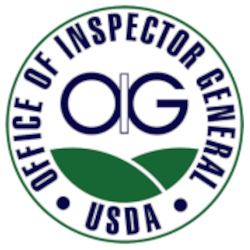The Whistleblower Protection Enhancement Act of 2012 was signed into law on November 27, 2012. The Act strengthens protection for Federal employees who blow the whistle on waste, fraud, and abuse in Government operations.
Whistleblower disclosures can save lives as well as billions of taxpayer dollars. They play a critical role in keeping our Government honest, efficient, and accountable. Recognizing that whistleblowers root out waste, fraud, and abuse, and protect public health and safety, federal laws strongly encourage employees to disclose wrongdoing. Federal laws also protect whistleblowers from retaliation.
The Whistleblower Protection Enhancement Act of 2012 directs Inspectors General to designate a Whistleblower Protection Ombudsman. The Ombudsman’s role is to educate agency employees about prohibitions on retaliation for protected disclosures, and educate agency employees who have made or are contemplating making a protected disclosure about the rights and remedies against retaliation for protected disclosures. The Ombudsman is prohibited from acting as an employee’s or former employee’s legal representative, agent, or advocate. Later legislation changed the title of Ombudsman to Whistleblower Protection Coordinator.
Whistleblower Submission for USDA Employees
OSC Introduces New Video Series
The U.S. Office of Special Counsel (OSC) recently unveiled a new series of videos aimed at educating federal agencies and non-federal organizations on prohibited personnel practices, the Uniformed Services Employment and Reemployment Rights Act, the Hatch Act, whistleblower disclosures, and alternative dispute resolution.
March 2023 OSC Video on Introduction to Prohibited Personnel Practices
Resources
- Federal Whistleblower Protection Frequently Asked Questions
- MSPB - Blowing The Whistle: Barriers to Federal Employees Making Disclosures (pdf)
- Otherwise Appealable Actions/Individual Right of Action and Associated Timeframes
- Section 1097 of the National Defense Authorization Act for Fiscal Year 2018 (pdf)
- Whistleblowing Works: How Inspectors General Respond to and Protect Whistleblowers (pdf)
- The OIG Hotline Process & Whistleblower Rights and Protections (pptx)
Prohibited personnel practices (PPPs) are employment-related activities that are banned in the federal workforce because they violate the merit system through some form of employment discrimination, retaliation, improper hiring practices, or failure to adhere to laws, rules, or regulations that directly concern the merit system principles.
The U.S. Office of Special Counsel has the authority to investigate and prosecute violations of the 14 PPPs. More information on prohibited personnel practices.
The U.S. Office of Special Counsel offers additional training, outreach materials, and resources such as Prohibited Personnel Practices fact sheets, handouts, posters, training materials, and Equal Employment Opportunity Resources.
The National Defense Authorization Act of 2013 makes it illegal for an employee of a Federal contractor, subcontractor, grantee or subgrantee to be discharged, demote, or otherwise discriminated against for making a protected whistleblower disclosure. In 2016, Congress amended the program to make the protections permanent.

